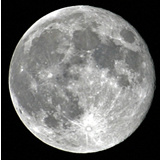According to this report, people in Blora Regency in Central Java will be obliged to speak Javanese on Thursdays (Kemis) from January 2010. This applies to civil servants, officials in state-owned enterprises, teachers and students, and the students should use the kromo inggil (formal) forms with their teachers. The aim is to preserve the Javanese language in all its forms.
A related report mentions that no sanctions will be imposed on those who do not speak Javanese in Blora on Thursdays.
Earlier this year the Surabaya Education Department in East Java apparently made it compulsory for students and teachers to speak Javanese on Mondays and Tuesdays in city schools. Not all students were happy with this as they don’t speak Javanese.
Even though Javanese is spoken by about 80 million people (45% of the population of Indonesia), it seems that there are worries about the future of the language, and of Indonesian taking its place.
